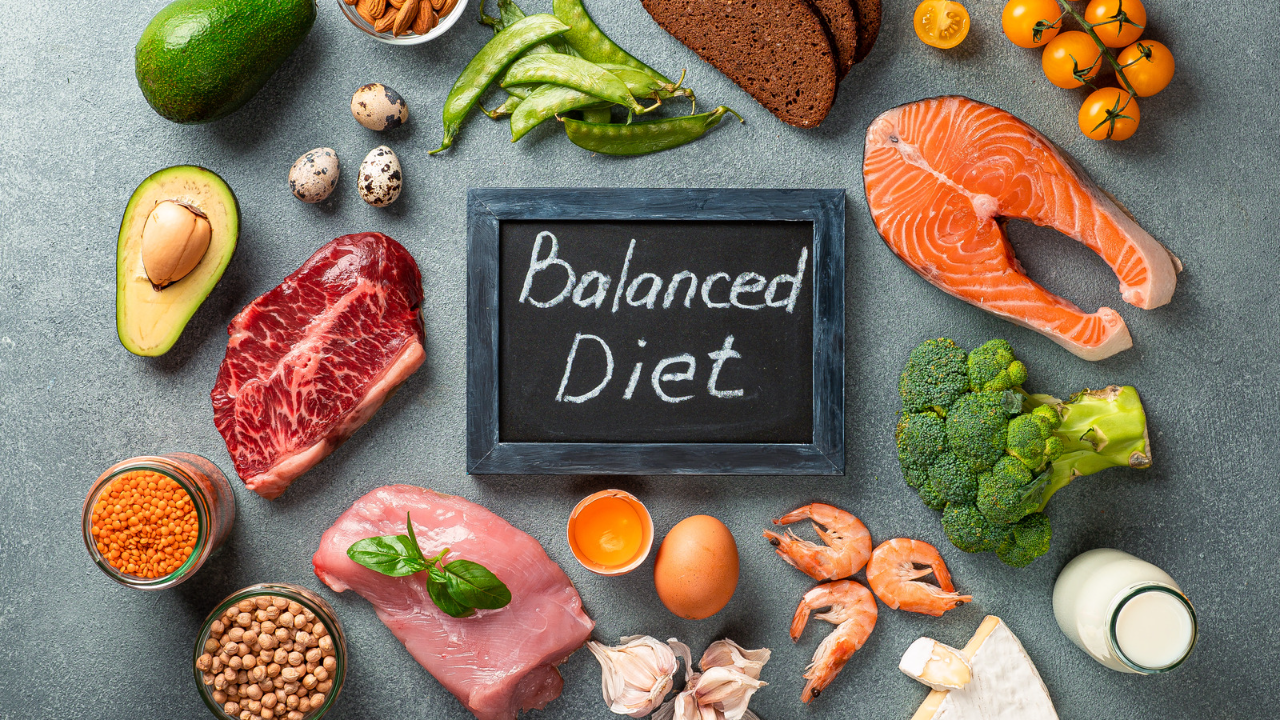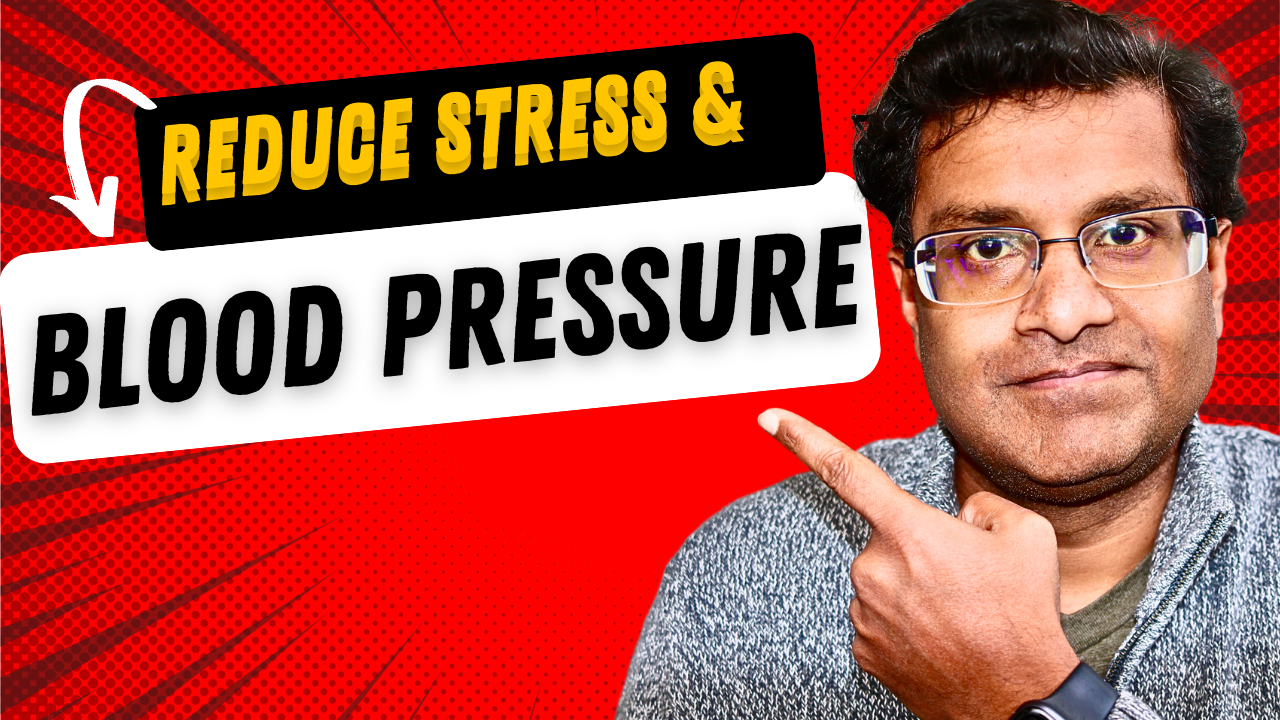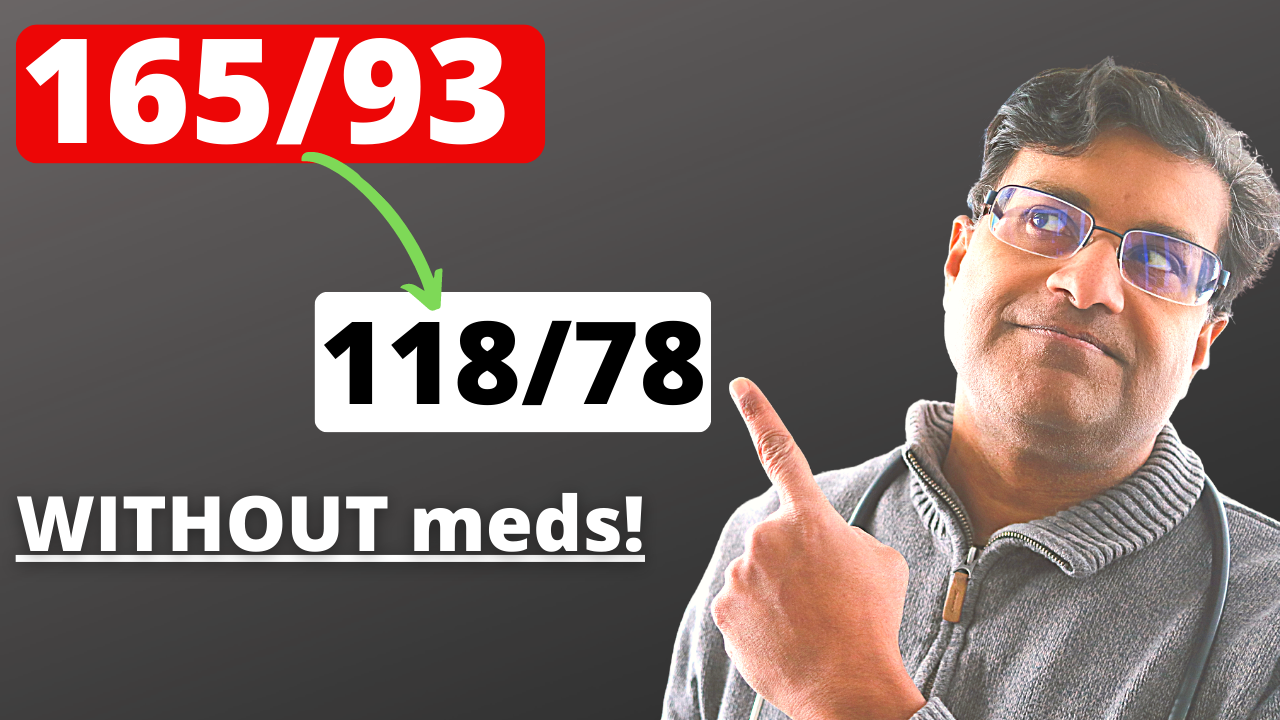This article will look at the connection between stress and blood pressure and 7 tips to manage stress and anxiety.

What is high blood pressure?
High blood pressure is a common health condition that can lead to severe complications, such as heart attack, stroke, or kidney failure. Stress is one of the contributing factors that can cause high blood pressure. In this article, we will explore how stress affects blood pressure, and what actions you can take to manage stress and lower your blood pressure.
Anxiety and blood pressure
When you get scared or feel threatened, your body goes into something called “fight or flight” mode. It’s like when you see a big, scary dog running towards you, and you either want to fight it or run away. Your body releases something called cortisol and adrenaline, which are like special messengers that tell your body to get ready for action. Your heart starts beating faster, your breathing gets faster, and your blood vessels get smaller. All of these things help you be ready to either fight or run away. But when this happens too often, like when you worry a lot about things or feel stressed all the time, it can make your blood vessels stay narrow and constricted and your heart works harder. This is not good for your blood vessels nor your heart. That’s why it’s important to try to relax and not worry too much, so your body doesn’t have to be in constantly in fight or flight mode all the time.
When you experience stress, your body releases hormones like adrenaline and cortisol, which prepare your body for a quick response. These hormones cause your heart to beat faster and your blood vessels to constrict . This narrowing of blood vessels causes an increase in blood pressure.

Can stress raise high blood pressure?
- Short-term symptoms of stress on blood pressure include headaches dizziness chest pain and palpitations.
- Long-term consequences of stress and high blood pressure include:
1.Chronic high blood pressure: Chronic stress can lead to chronically high blood pressure levels. This can lead to heart disease, stroke, and kidney damage.
2.Mental health problems: Long-term stress can also contribute to mental health problems such as depression and anxiety.
It’s important to manage stress effectively to prevent these short-term and long-term consequences. Simple lifestyle changes like getting enough sleep, regular exercise, and meditation can be helpful in managing stress. In some cases, medication may also be necessary to control high blood pressure caused by stress.
Chronic stress can also lead to unhealthy habits, such as smoking, overeating, or alcohol consumption, which can further increase your blood pressure. To manage stress and lower your blood pressure, you need to adopt a comprehensive approach that addresses both your physical and emotional well-being.
Here are 7 tips you can use to manage stress and lower your blood pressure:

Exercise regularly: Physical activity is one of the most effective ways to manage stress and lower your blood pressure. Exercise releases endorphins, which are natural painkillers that improve your mood and reduce stress. It also helps strengthen your heart and blood vessels, which can lower your blood pressure. Aim for at least 30 minutes of moderate-intensity exercise, such as brisk walking, cycling, or swimming, most days of the week.
Practice relaxation techniques: Relaxation techniques, such as deep breathing, meditation, or yoga, can help calm your mind and body and reduce stress. These techniques can also lower your blood pressure by relaxing your blood vessels and improving blood flow. You can practice relaxation techniques at home or attend a class or workshop.
Get enough sleep: Sleep is crucial for your physical and emotional well-being. Lack of sleep can increase your stress levels and raise your blood pressure. Aim for at least seven to eight hours of sleep each night. Create a relaxing sleep environment, such as a dark, quiet, and cool room, and avoid using electronic devices before bedtime.

Eat a healthy diet: A healthy diet rich in fruits, vegetables, whole grains, lean protein, and low-fat dairy products can help lower your blood pressure and manage stress. Avoid foods high in sodium, saturated and trans fats, and added sugars, as they can raise your blood pressure and increase your stress levels.
Limit vices such as smoking and excessive alcohol consumption. No more than one drink per day for women and two drinks per day for men.
Connect with others: Social support is essential for managing stress and lowering your blood pressure. Spend time with family and friends, join a support group, or participate in community activities. Talking with someone you trust about your feelings and concerns can help relieve stress and improve your mental health.
Seek professional help: If you feel overwhelmed by stress, seek professional help from a mental health provider. They can help you develop coping strategies, manage your stress, and improve your mental health. For example Biofeedback therapy can help you control stress related problems and your body’s automatic functions. Through directed mind body exercises you can better manage conditions such as anxiety and help manage your stress.
If you have high blood pressure, your healthcare provider may also recommend medication to help lower your blood pressure.
Click right here or click right here to see entire YT video. Have a good day and Think your health.
Sources:







